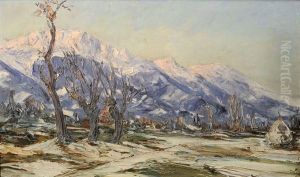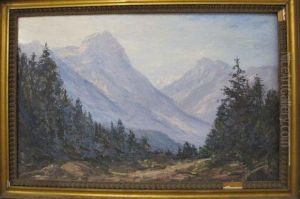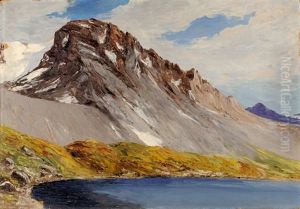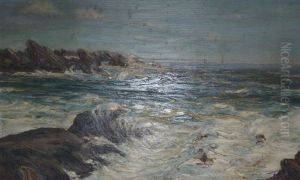Emile Veron Paintings
Emile Veron was not an artist by profession but made a significant impact in the art world, particularly in the realm of ceramics. Born in 1829 in France, he was better known for his role as a businessman, specifically for his association with the renowned Faience Factory of Gien. He took over the management of the factory from his father-in-law, Thomas Hall, who had founded the factory in 1821 to produce fine earthenware.
Veron's role became instrumental in the development and success of the factory, as he focused on both the artistic elements and the business side of operations. He had an eye for artistic talent and was adept at adapting the production to the changing tastes of the era. Under Veron's management, the Faience Factory of Gien gained prestige for its high-quality earthenware that incorporated styles ranging from Renaissance to Art Nouveau.
While Emile Veron himself was not an artist, his contribution to the arts was through his ability to foster an environment where artists and craftsmen could excel. He provided them with the resources and freedom to produce innovative and high-quality ceramic pieces that were sought after by connoisseurs of the time. The factory's products were exhibited at international expositions, winning medals and recognition, and contributing to the prominence of French ceramics in the international market.
Emile Veron's legacy is intertwined with the history of the Faience Factory of Gien, which continues to be a symbol of the rich tradition of French ceramics. His death in 1897 marked the end of an era, but the standards he set and the reputation he helped build for the factory carried on into the future, influencing the world of decorative arts in France and beyond. The factory is still operational today and stands as a testament to Veron's vision and dedication to the fusion of artistic endeavor and entrepreneurial spirit.





